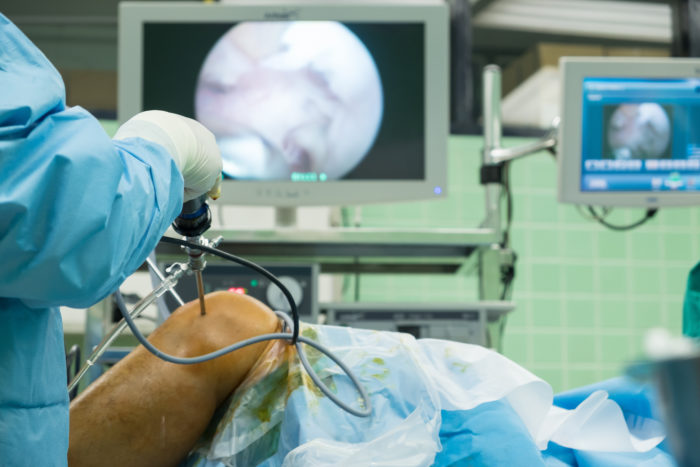Is there a better, less painstaking option to total knee replacement surgery?
Last summer, at the age of 79, my grandpa got a “new knee.” He had worked the majority of his life as a carpenter. With years of constantly being on his knees, eventually the only thing that remained on the inside was bone.
So my grandpa decided, along with roughly 600,000 other Americans each year, that knee replacement surgery was the best option.
Although if you were to ask him today, he wouldn’t have done it.
Surgery at any age isn’t easy, let alone someone nearing 80. My grandpa was bedridden for the next three months. The post-surgery pain was worse than the everyday pain he was living with. The physical therapy was an uphill battle. Little to no progress was made early on, and the pain only intensified. During this time, Vicodin and Oxycontin were taken often and regularly to get from the start of the day, to the end of it.
An independent man, was now dependent on a walker. Something he didn’t need before receiving a “new knee.” Now, almost a full 12 months later, my grandpa is walking on his own again, but the pain is still present.
“I have my good days, and bad days,” he says.
Today in the United States, a total knee replacement surgery, including: physical therapy, hospital stay, and drug medication costs about $100,000. Often it is not the cost that is the most troublesome, but the continued struggle with rehabilitation and uninterrupted discomfort.
However, thanks to clinical research, extremely promising, cheaper, and less painstaking alternatives to knee replacement surgery are around the corner. One example is a genetic treatment being developed by Kolon TissueGene, an advanced cell therapies company, entering a phase III clinical trial with a single injection drug that is designed to rebuild cartilage in the knee and treat degenerative osteoarthritis.
The drug currently known as INVOSSA™ (TG-C), has demonstrated great success thus far, and has shown to significantly improve the functionality and lessen the pain caused from osteoarthritis. The participants in the study were candidates for knee replacement surgery, but with this alternative treatment, they have seen almost no drug related side effects, and their quality of life has been enhanced dramatically.
Health’s biggest questions, often do not have easy solutions, but clinical research is moving closer each day toward improving the quality of life for today’s generation, and the one to follow. In this case, that’s happening with hopefully one less knee replacement surgery at a time.

